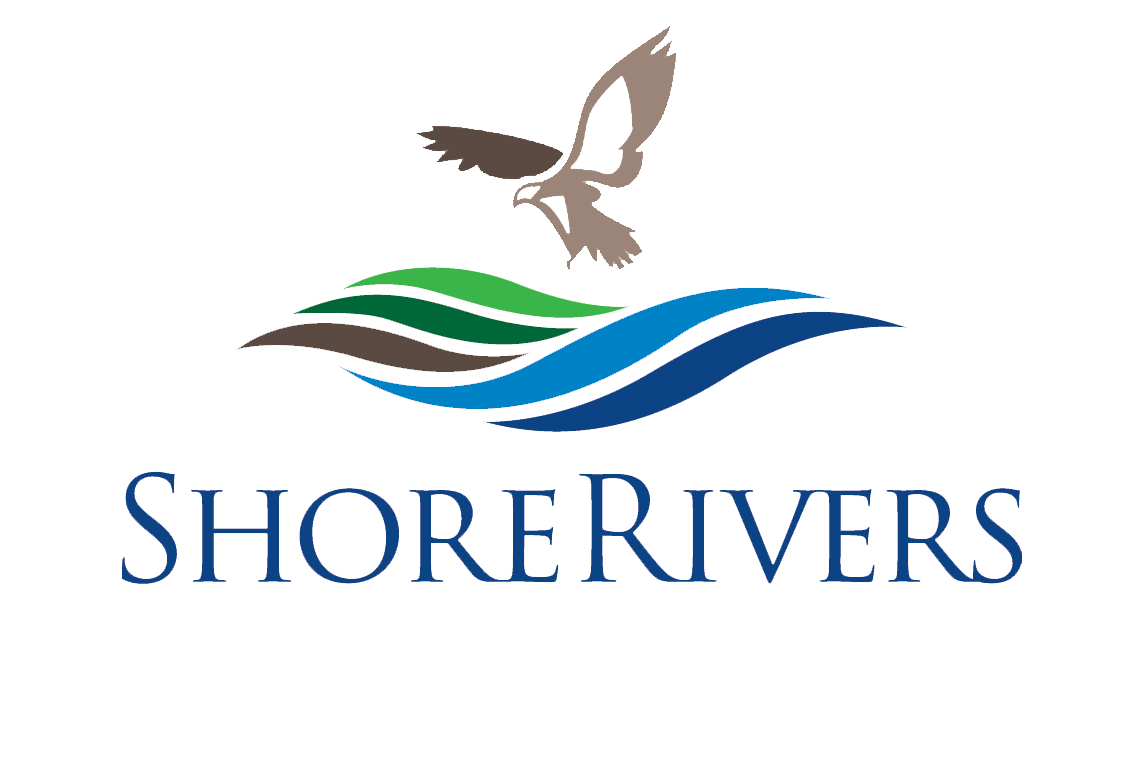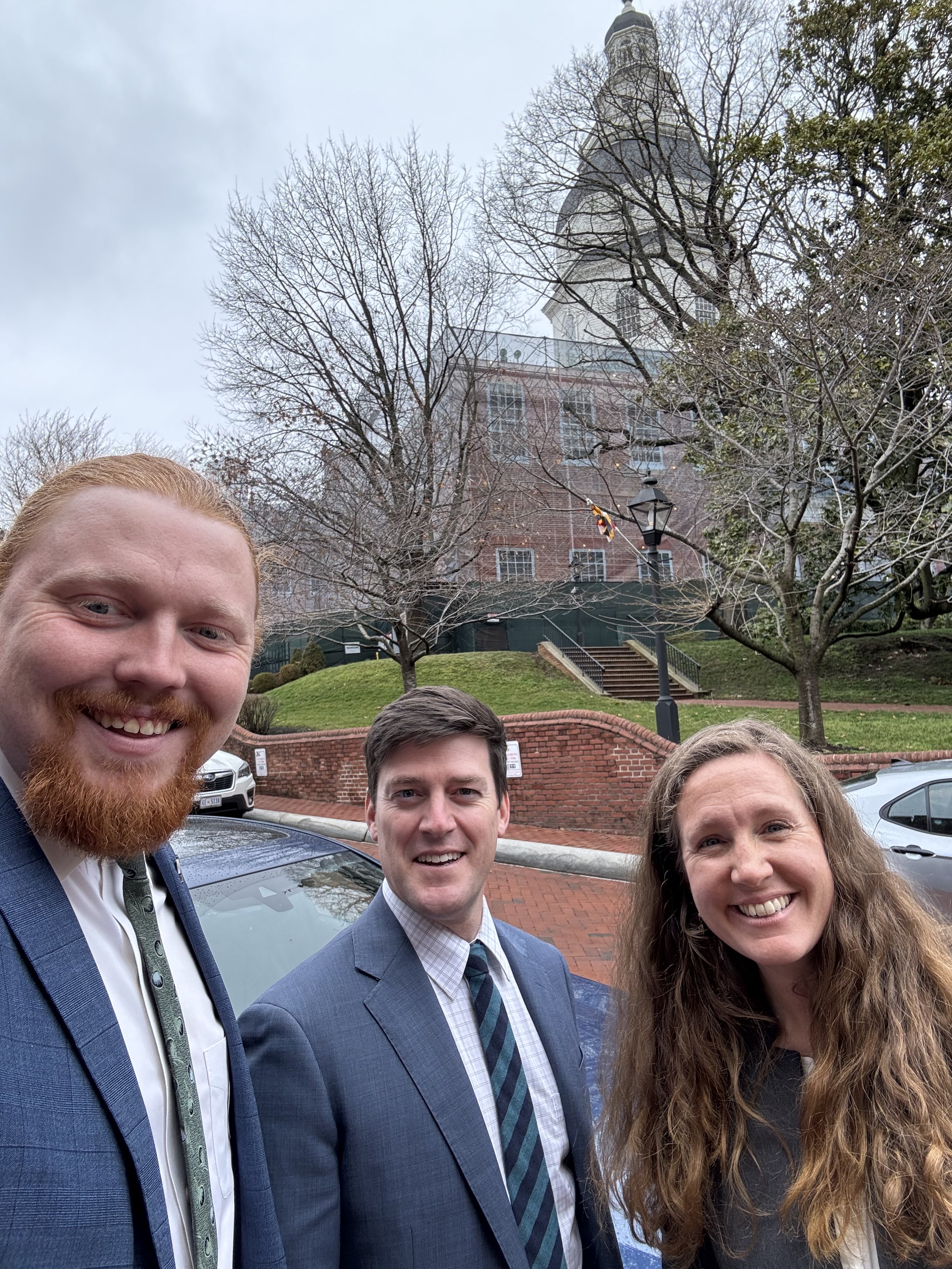ShoreRivers’ advocacy work is led by its four Riverkeepers: Annie Richards, Chester Riverkeeper; Matt Pluta, Choptank Riverkeeper; Ben Ford, Miles-Wye Riverkeeper; and Zack Kelleher, Sassafras Riverkeeper. This was a banner year for the organization’s advocacy effort, with four of its five priority bills passing from the assembly to Governor Wes Moore’s desk.
April 8—also known as Sine Die day—marked the official end of session for Maryland’s General Assembly. Despite challenges due to the state’s constrained budget, this was a banner year for ShoreRivers legislative priorities. The organization’s advocacy work, which is led by your Riverkeepers, is fundamental to creating system-wide change to protect our local rivers against the major issues that impact water quality on the Eastern Shore. As a leading voice for the waterways of the Eastern Shore, we amplify our work through local and state-wide coalitions, working groups, and other positions of influence.
Over the past 90 days, your Riverkeepers engaged with 60 environmental bills covering a wide array of topics including permitting for industrial sludge, abandoned vessels, enforcement activities in the critical area, invasive species control, underwater grass protections, and more.
Together, ShoreRivers, environment advocates, and legislative committee members reviewed and discussed the findings of the Chesapeake Bay Program’s CESR Report (A Comprehensive Evaluation of System Response), which influenced many of the environmental bills passed this session and will continue to shape the way we prioritize restoration and Bay health goals for years to come.
After months of hard work and productive conversations, the following slate of bills has now passed from the assembly to Governor Wes Moore’s desk to await ratification (or veto):
ShoreRivers Priority/Leadership Bills:
SB653/HB1101 – Clean Water Justice Act, which gives communities impacted by water pollution the ability to enforce state water quality protection laws against polluters.
SB1140/HB807 – Submerged Aquatic Vegetation (SAV) Surveys, which updates regulations that govern how the Maryland Department of Natural Resources currently maps and delineates SAV Protection Zones.
SB1144/HB1266 – Clean Water Commerce Account Contracts for the Purchase of Environmental Outcomes, which clarifies language regarding payment schedules for an important funding source for pollution-reducing projects.
SB1074/HB991 – Agriculture Food Processing Residuals Utilization Permit, which strengthens regulations for transporting, storing, and the land application of industrial sludge residuals.
Other Passing Legislation Supported by ShoreRivers:
SB0268 – Critical Area Program Enforcement
SB0281/HB0109 – Alteration or Removal Requirements for Submerged Aquatic Vegetation
SB0178/HB0022 – Requirements for State Highway Administration on Pollinator Habitat Plan
SB0306/HB0233 – Climate, Equity, and Administrative Provisions to the Critical Area Protection Program
Half of ShoreRivers priority bills had bipartisan sponsorship, showcasing that protecting our rivers is a goal everyone can get behind. Many bills supported by ShoreRivers this session were brought forward by various state departments such as the Critical Area Commission, the Department of Agriculture, and the Department of Natural Resources, showcasing the Moore- Miller administration’s commitment to improving Maryland’s environmental protections. ShoreRivers is grateful for all of our environmental partners this session—including Waterkeepers Chesapeake, the Chesapeake Bay Foundation, Citizens Campaign for the Environment, Arundel Rivers Federation, Maryland League of Conservation Voters, Potomac Riverkeeper Network, and Clean Water Action—as our collective voices can make Maryland’s waterways cleaner and more accessible for all.
ShoreRivers implements restoration projects throughout our communities, engages volunteers in tree plantings and oyster growing, and reaches thousands of students each year through environmental education programs in local schools. Our advocacy at the local, state, and federal level ensures that all of those endeavors can continue in order to support water quality improvements. Visit shorerivers.org to learn more about this important work.


